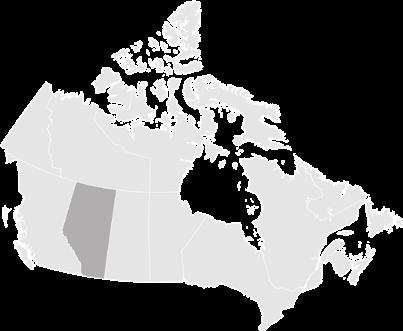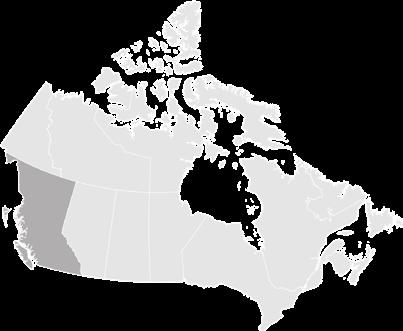
4 minute read
EXECUTIVE SUMMARY
Developed by Solange van Kemenade, PhD, and Bey Benhamadi, PhD, with the collaboration of Jean Nephetaly Michel and Aline Moussard (literature review)
Submitted to RésoSanté Colombie-Britannique
Advertisement
June 2022
Applicant for the study
RésoSanté Colombie-Britannique
Project Manager
Éléonore Tremblay
Provincial and territorial project coordinators
Sandra St-Laurent, Yukon
Paul Ntahondakirira, Saskatchewan
Isabelle Déchène-Guay, Alberta
Laurence Calce, Greater Vancouver, British Columbia and North Central BC. Responsible for communication and technical support for the other provinces.
Agathe Gaulin, Vancouver Island, Gulf Islands and West Central region of the province. Resource person for Alberta and Saskatchewan.
Participating Francophone Health Networks
RésoSanté Colombie-Britannique: Nour Enayed, Assistant director
Réseau Santé Alberta: Paul Denis, Executive Director
Réseau Santé en français de la Saskatchewan: Frédérique Baudemont, Executive Director
Partenariat communauté en santé: Sandra St-Laurent, Executive Director
Linguistic review: Johanne Chéné
English translation: Annie Bourret, French language linguist and certified translator
Graphic design and layout: Julia Stomal
Photographs and images: depositphotos.com, dreamstime.com, vecteezy.com
Publishing and distribution:
RésoSanté Colombie-Britannique
102-1575 W 7th Ave, Vancouver, BC V6J 1S1
Email: info@resosante.ca
Telephone: (604) 629-1000 (604) 629-1000
Place of publication: Vancouver, British Columbia
Date: 2022
This document should be cited as follows: RésoSanté Colombie-Britannique (2022). État des connaissances, ressources existantes et lacunes en matière de troubles cognitifs et de démence chez les francophones en Colombie-Britannique, en Saskatchewan, en Alberta et au Yukon.
Study conducted by Solange van Kemenade and Bey Benhamadi, with the collaboration of Jean Nephetaly Michel and Aline Moussard as part of the project “L’abécédaire d’un cerveau en santé - Sensibilisation à la démence dans l’Ouest et le Nord.”
This publication may be reproduced in whole or in part provided that the source is acknowledged. It is available in electronic form at: https://resosante.ca/
DOI: 10.13140/RG.2.2.30783.38563
© RésoSanté Colombie-Britannique, British Columbia, 2022. All rights reserved
Acknowledgements
We would first like to thank those who participated in the interviews and completed the online survey. Special thanks to Ms. Éléonore Tremblay, Project Manager at RésoSanté Colombie-Britannique, for her trust, motivation and logistical support throughout this study. She provided feedback and advice throughout the research process.
We also thank the coordinators in the three provinces and the territory involved in the project for their assistance in sharing relevant materials, recruiting interview participants, and organizing the survey.
As researchers, this process has helped us to better understand the issues of living with cognitive impairment, including dementia. The interviews allowed us to see what the literature strongly emphasizes, namely how much the disease can affect the life of the person with dementia and those close to them. We hope that the study will contribute to a renewed understanding of the issues and needs of Francophones in minority communities in Western and Northern Canada affected by this disease, as well as the needs of their family caregivers. We hope the knowledge gained will lead to the implementation of measures to meet these needs.
This report was written in the unceded traditional territory of the Algonquin people. We thank them for their hospitality. RésoSanté ColombieBritannique recognizes that it is located on the unceded territories of the xʷməθkʷəy̓əm (Musqueam), Sḵwx̱wú7mesh (Squamish), and Selílwitulh (Tsleil-Waututh) First Nations and thanks them for their hospitality.
With gratitude and respect, Healthy Community Partnership notes that the organization works on the traditional territory of the Kwanlin Dün First Nation and the Ta’an Kwäch’än Council.
Finally, we thank the Public Health Agency of Canada, which funded the project through the Dementia Strategic Fund: Awareness raising initiatives.
The linguistic revision of the French version was carried out by Ms. Johanne Chéné, retired lecturer at the Université du Québec en Outaouais and Ms Claire Mazuhelli, certified proof reader and translator.
About the authors and contributors
Solange van Kemenade holds a PhD in sociology from the Université du Québec à Montréal. She worked from 2001 to 2012 as a senior research analyst with the Public Health Agency of Canada (PHAC) and Health Canada. Since 2013, Solange has been working as an independent researcher, teaching part-time at the Department of Social Sciences at the Université du Québec en Outaouais and collaborating with the Groupe de recherche sur la formation et les pratiques en santé et en service social en contexte francophone minoritaire (GReFoPS) at the University of Ottawa. Her research focuses on Francophones’ access to health and social services in a linguistic minority context, and the needs of vulnerable communities (First Nations, immigrants). She has conducted project evaluations, including some in Latin America and Africa, and her research focuses on qualitative methods and community participation.
Bey Benhamadi holds a PhD in demography from the Université de Montréal. His career began in academia and continued in the federal government. Since 2015, he has worked as an independent consultant, focusing on the demographic and health profiles of Francophone minority communities, the linguistic continuity of these communities, and the barriers that impede their access to health and social services.
Jean Nephetaly Michel holds a Master’s degree in Sociology from the University of Ottawa, where he is currently pursuing doctoral studies in the same discipline. His research interests include the family, migration and higher education in Canada. He has also collaborated on several research projects, the most recent of which focused on innovative mental health practices in the context of the Francophone minority in Newfoundland and Labrador and the Northwest Territories. Jean took notes of the interviews, contributed to the analysis of the data and to the writing of the section presenting the results.
Aline Moussard is a neuropsychologist and project manager at the Research Centre of the Centre de recherche de l’Institut Universitaire de gériatrie de Montréal (CRIUGM). She received training in clinical neuropsychology at the Université de Lille (France), and then completed a doctorate in research at the BRAMS laboratory (Université de Montréal). She enriched the literature review from the perspective of her discipline.








